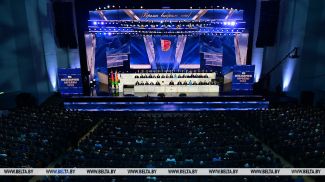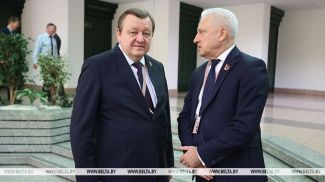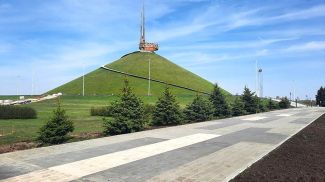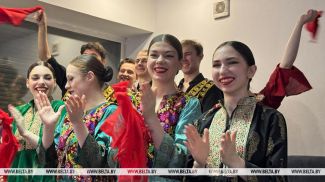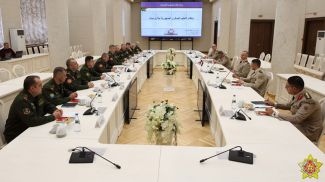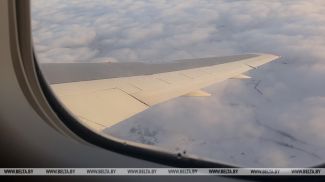MINSK, 5 November (BelTA) – Belarusian polar explorers will expand cooperation with expeditions of other countries, BelTA learned from Head of the 12th Belarusian Antarctic Expedition Aleksei Gaidashov on 5 November.
The expedition will leave Minsk for Antarctica on 8 November. The team will travel from Minsk to Cape Town, South Africa by air where local flights will take them to the Belarusian base – Vechernyaya Mountain. The number of people taking part in the expedition has been increased to ten this time. Half of them are researchers. “For the first time we will be rather broadly represented in expeditions of other countries. Our researchers will work as part of Bulgarian, Turkish, and Russian Antarctic expeditions,” Aleksei Gaidashov said.
The Belarusian environmental engineer Yuri Giginyak has participated in the 17th Soviet expedition and three Belarusian ones. He will take care of biological research at the Russian station Progress. The geophysicist Pavel Shablyko will work as part of the Bulgarian expedition while Sergei Kakareka will take care of geoecological studies as part of the Turkish expedition. Asked whether foreign researchers will participate in the Belarusian Antarctic expedition, Aleksei Gaidashov said: “There are plans to get them involved next year. It will be an exchange of scientific and technical personnel.”
“For the first time ever vessels will not drop by in our area of Antarctica at the beginning of the season. It has a certain effect on preparations for and actual seasonal work, which will last for about five months. We can deliver only a limited amount of cargo there. The general cargo will be delivered at the end of the season, including parts of the Belarusian Antarctic station. This is why we will have to work in even harsher conditions. Nevertheless, we have a lot to accomplish and we will endeavor to do it,” the head of the expedition stressed.
Every participant of the Belarusian Antarctic expedition will have to take care of things as part of the main profession and allied ones. In addition to further building up the infrastructure of the first stage of the station they will have to take a lot of samples of natural Antarctic materials and carry out a complex of scientific studies. Those include ground-based and satellite-powered monitoring of the atmosphere and the underlying terrain, radiation calibration of spectrum equipment of space satellites using the snow cover as part of the national space program. Participants of the expedition will also carry out hydrochemical, biological, environmental studies of terrestrial, marine and freshwater ecosystems of the Antarctic, monitor the ozone layer in the atmosphere and UV radiation, perform geophysical monitoring, and study environmental and climate changes.
“Apart from that, we are going to participate in at least two international elective programs. As part of the first one we will work with Finnish colleagues to study changes of the temperature and levels of freshwater Antarctic bodies of water. As part of the second one we will team up with Russian colleagues to continue studying reflective qualities of glaciers and changes of their contours using ground-based remote measurement tools, aerial flying vehicles, and space satellite systems,” Aleksei Gaidashov added.
First Deputy Chairman of the Presidium of the National Academy of Sciences of Belarus Sergei Chizhik noted that the establishment of the infrastructure of the first stage of the Belarusian Antarctic station is in the final stage. “Conditions for work and for living are now available. While survival was the top priority in the past, we now focus on scientific results. Belarus is becoming part of the international community of Antarctic researchers. It is not easy. We have to demonstrate results of our work,” he pointed out.
A solemn ceremony to launch the 12th Belarusian Antarctic expedition took place in the National Academy of Sciences on 5 November.



